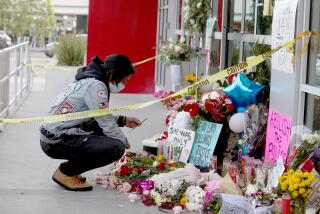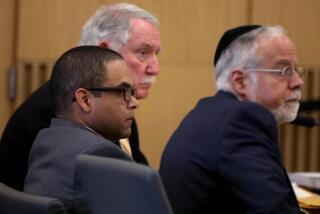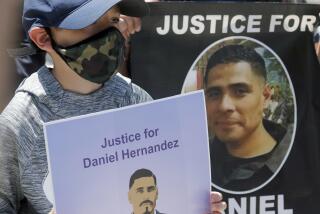Officers justified in invading home without warrant, court rules
Burbank police officers investigating a rumor that a truant teenager was planning to “shoot up” Bellarmine-Jefferson High School five years ago were justified in invading the student’s home without a warrant because of concerns that violence was imminent, the U.S. Supreme Court ruled Monday.
The unanimous, unsigned decision by the high court served as fresh censure of the U.S. 9th Circuit Court of Appeals, with which the justices are frequently at odds. A three-judge panel of the appeals court had ruled, 2 to 1, against granting immunity to two of the four Burbank Police Department officers who entered the home without a warrant.
Vincent Huff, a student at the private Catholic high school at the time of the 2007 incident, had been subjected to bullying and had been absent for two days when police were alerted by school authorities to “a rumor about a letter” in which the student had allegedly warned of an attack on the school.
Huff’s parents, George and Maria, failed to answer their telephone or front door when officers arrived to investigate. When one of the officers called Maria Huff on her cellphone to inform her that they were outside, she came out with her son to talk to the officers. She declined to invite them in, and when asked if there were guns in the house, she rushed back inside. Officers followed, fearing that a violent confrontation might be imminent, according to court documents.
A federal district court judge ruled that the warrantless intrusion violated the 4th Amendment protection against unreasonable search and seizure but that the officers were entitled to immunity because they had acted in response to what they thought was an imminent danger.
The 9th Circuit panel, however, deemed the intrusion illegal and the assumption that violence was about to occur unreasonable because “there was no underlying offense; the officers were investigating rumors.”
The Supreme Court disagreed. “The panel majority did not heed the district court’s wise admonition that judges should be cautious about second-guessing a police officer’s assessment, made on the scene, of the danger presented by a particular situation,” the justices said, calling the panel’s method of analyzing the case “entirely unrealistic.”
A call to the Huffs’ attorney, Leo James Terrell of Beverly Hills, was not returned.
The Supreme Court’s ruling in the case coincided with its decision on another search-and-seizure matter. The high court ruled that the clandestine installation of GPS tracking devices on suspects’ vehicles by police without a warrant violates the right of an individual to be free from unreasonable searches.
More to Read
Start your day right
Sign up for Essential California for news, features and recommendations from the L.A. Times and beyond in your inbox six days a week.
You may occasionally receive promotional content from the Los Angeles Times.







